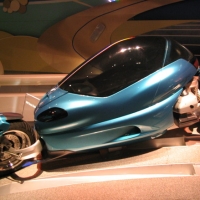The Security Risks of the Internet of Things

The Internet of Things can be a wonderful thing. From making our mailboxes smarter to creating light bulbs that know when you come home, tying seemingly ordinary objects to the vast world that is the Internet is making life easier and more novel.
But is it making it more secure? If you take into account the realization that hackers can remotely control Chrysler automobiles that are connected to a network, the answer seems to be “no.” In the wrong hands, this type of control can lead to serious accidents.
Network engineers Charlie Miller and Chris Valasek were able to take control of a Jeep Cherokee and mess with the windshield wipers, radio, air conditioning, and even the transmission. If the transmission were to be disengaged while someone is driving on a busy highway, an accident would be almost unavoidable.
“I think it is a seminal moment,” Paddy Srinivasan, vice president at LogMeIn Inc., a company deeply invested in the Internet of Things, told Beta Boston. “These new devices need a fresh approach and a new way of thinking about security, and that is the missing piece.”
It’s a scary notion, and in an age where we’re becoming more and more sensitive to our privacy thanks to the NSA, the idea of connecting even more of our devices to a network can be a bit overwhelming. If our cars can be controlled from a remote location, who’s to say a hacker can’t take control of dozens of our other belongings that are all gaining access to the Internet?
Even our grocery stores are taking advantage of the Internet of Things. Chris Hjelm, CIO at $108 billion supermarket chain Kroger, uses a connected temperature-monitoring system in his stores’ frozen food aisles in order to keep products from going bad. It saves energy and even reduces labor.
Do we need to have our mailboxes, light bulbs, and freezers connected like this? And if the Internet of Things is being incorporated into so many different objects and devices, are we sacrificing security? It’s hard to tell at this point whether a case like the Jeep being remotely controlled is just a growing pain or a sign of things to come, but Anders Wallgren of Electric Cloud explains to StickyMinds that it could be for the greater good:
It's progress, it's inevitable, and I think we do benefit from it. There's always going to be room for doing it the purist's way of no software and just use a carburetor, and none of this fancy fuel injection stuff, and I think there's absolutely always a place for that. But I think this is where the world is headed—it's going to be electric cars and they're going to be run by computers. That's where we're headed.

